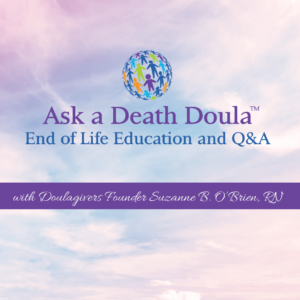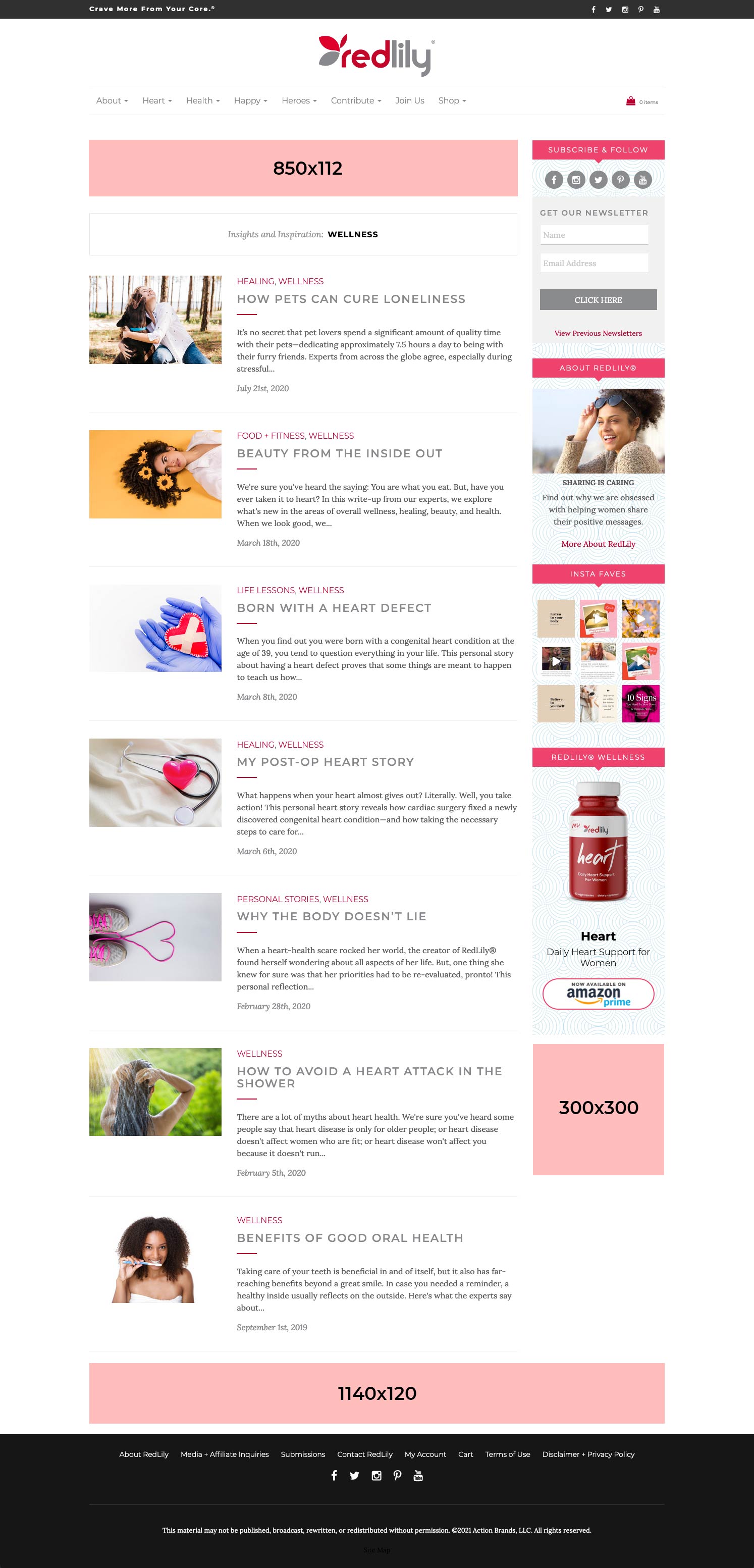When a loved one is passing, it feels like every wall is caving in. Suzanne B. O’Brien, RN works with families during this critical time and says it doesn’t have to be a negative experience. Part of her mission is creating positive passings and revealing a sense of renewal, clarity, and serenity in others.
“Creating Positive Passings”
May I first ask you…
- Have you ever had a loved one die?
- How was that experience for you?
- Did your loved one have their end of life wishes in writing and were they honored?
- Did your loved one have a healthcare proxy? Someone who could speak on their behalf if they were unable?
End of life is an inevitable part of humanity. It’s a part of our life’s journey that every person will experience at some point. However, these types of questions are seldom discussed among family members in anticipation of this vital life stage.
Someone’s passing shouldn’t be a negative experience, but rather a time of celebration.
As a society, we feel uncomfortable talking about death. We all know even the word “death” has a negative connotation and is a tough pill to swallow. Why? Because death creates fear in us. Most people are afraid of the unknown and what may be on the other side. But please know there is a positive side.
End of life should be where we celebrate a person’s life; and all that he or she has accomplished here on Earth. That’s why I believe it is imperative to keep conversations like these alive and flowing through our communities. Ultimately, so we are not taken aback when death is finally upon us.
End of life is when people get their “spiritual eyes” and share what they feel their life’s journey was really all about.
End of Life Doulas are a volunteer community, or family members, who have had special training on how to care for dying patients during this precious phase of life. The volunteer will stay with the patient and family for the duration of this time; similar to a traditional doula who stays with a woman until she gives birth.
Special love and preparation is needed when we prepare for a new life of a baby—which is the same feeling for a life that is leaving us. Just by the doula being present, she or he ”holds” the space and provides a supportive presence that lowers the stress that accompanies the process.
I have had the privilege of working with end of life patients through hospice care; as well as cancer patients for most of my nursing career. I have studied the elements that make a “Positive Passing” and the reasons why we don’t see death as positive. I am passionate about creating positive passings.
Planning ahead
Ninety percent of creating positive passings is planning ahead—but people need the means to do it. I have witnessed end of life experiences that have been 100 times harder on the patient and their families due to the lack of preparation. This is a shame that the patient has to go through this at such a trying time.
Research indicates that 82 percent of people say it’s important to put their end of life wishes in writing, but only 23 percent have actually done it. (Source: California Healthcare Foundation 2012). My book entitled “Creating Positive Passings and the End of Life Doula Program” is discusses why most people do not talk about or plan for our end of life.
Here are two main reasons why this may be:
- The fear of death (death is the second leading fear in America)
- Medical advances mostly focus on curing ailments and diseases rather than appropriate comfort care for the patient.
We live in fear
Nowadays, people live well into there 80s and 90s—and some even to 100 with the help of modern medical advances. That is wonderful. At the same time, many people have not witnessed someone pass up close and personal, because death has become so far removed from our every day experiences. It seems surreal to many.
With this huge fear of death in society, creating positive passings becomes too difficult for the average person to comprehend. This fear inhibits us from openly talking about death and planning how we want to “live” the end of our lives with advanced directives. A big part of what I do is to help families uncover what is meant by our fear of death.
When we are paralyzed with negative thoughts and fear, we can’t get anything done.
I have found over the years that death is one of the most sacred life stages a human can experience. By recounting patients’ life experiences (and listening to their stories), as well as watching their families support them at their bedside, we can allow “open conversations” to occur. Open conversations lessen this fear as a whole. I believe it is my destiny to empower people to make these choices.
The choice to receive end of life care is a personal decision and will vary person to person. Some families don’t always agree on these types of sentimental issues, so it’s very important that the most loving thing you do for someone who is dying is honoring what he or she wants. This can be very difficult for loved ones to follow through; but you must know that there really is no right or wrong answer.
These real-life stories always fascinate me because they come from a deep place of truth, compassion and vulnerability.
Being an end-of-life doula is extremely rewarding as you can imagine. However, what most people don’t know is that we are on the verge of a huge social change—one that we are all a part of no matter how wealthy or poor. Whether you are in Zimbabwe, Africa or in New York City, death is universal.
We all die the same way and go through many of the same physical, emotional, and spiritual experiences once we cross over. I love being able to provide this service because I get to experience some beautiful moments with people enjoying each other’s company as they get ready to leave this Earth. Their stories reveal a renewed clarity and serenity that we can all learn from.
Have you lost a loved one and want to hear from like-minded people on their experiences? Do you know someone who is sick, ill, or aged, and you are trying to find information on the end of life stage? Here are some resources that can help you obtain an end of life doula or assistance in this area.
Resources
The Death Café Movement was founded by Jon Underwood of England, and based on the work of Swiss sociologist Bernard Crettaz. The Death Café Movement has become a global social franchise. With 455 cafes to date, they are popping up all over the globe. The Death Café provides a safe, nonjudgmental environment where people can go talk about death with the focus on how to make the most out of our finite lives—all while drinking tea and eating delicious cake.
The Conversation Project was founded in 2011 by Ellen Goodman, a Pulitzer Prize winning journalist. The Conversation Project is a public appeal to have people’s end of life wishes expressed in writing and respected. According to this project, 70 percent of people surveyed said they would prefer to die at home, however, reality is that 70 percent of people die in a hospital, nursing home, or other long-term care facility.
End of Life Doula Training Program was created by myself, Suzanne B. O’Brien. My training program is based on my findings surrounding the needs of families to keep their loved ones at home during their final days. As a result of people not talking openly and honestly about death, hospice patients are entering the existing care program very late in their dying process. Therefore, it can be an unnecessary overwhelming and stressful time.
For more insights on how to lead your best life at any stage, listen to this conversation between Suzanne and RedLily™ founder Kerrie Lee Brown on a recent episode of “Ask the Death Doula”.

About the Author:
Suzanne B. O’Brien, RN is the Founder & Creator of the award-winning program Doulagivers: End of Life Doula Training, Eldercare Doula Training, and Doulagiver Care Consultant Training. She is also the recipient of the “Worldwide Leader In Healthcare” award by the International Nurses Association, and best-selling author.
To contact, email doulagivers@gmail.com or visit www.doulagivers.com



Not necessarily volunteers! Career option now. Paid!!!
Good point! We like this addition and our readers should know a lot of amazing people have made a wonderful career out of this, too. Thank you.